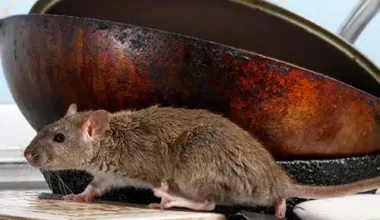4. Essential Oils as Natural Repellents
Certain essential oils are known to repel bed bugs and can be part of your natural strategy to keep them away. While essential oils may not completely eliminate an infestation, they can help reduce the number of bed bugs and prevent new ones from settling.
- Tea Tree Oil: Tea tree oil has antimicrobial and insecticidal properties that can help combat bed bugs. Mix 20 drops of tea tree oil with water in a spray bottle and spray it on infested areas like mattresses, bedding, and furniture.
- Lavender Oil: Lavender oil is known for its calming scent, but bed bugs find it highly repellent. Mix it with water and spray around areas where bed bugs are present.
- Peppermint Oil: The strong scent of peppermint oil can deter bed bugs from settling in an area. Spray a diluted peppermint oil solution (10-15 drops in water) in crevices and along baseboards.
5. Seal Cracks and Crevices
Bed bugs love hiding in small spaces, so it’s important to seal up any cracks or crevices in your home where they could be living.
- Inspect Your Home: Check walls, floorboards, furniture joints, and bed frames for any cracks or gaps that bed bugs could be using to hide.
- Seal Gaps: Use caulk or sealant to fill any visible cracks or crevices. This will prevent bed bugs from nesting in these areas and make it harder for them to spread.
6. Use Bed Bug-Proof Covers for Mattresses and Box Springs
Investing in bed bug-proof covers for your mattress and box spring is a natural, effective method for trapping bed bugs and preventing new ones from settling.
- Encasement Covers: These specially designed covers encase your mattress and box spring completely, trapping bed bugs inside and cutting off their food supply, eventually leading to their death. They also prevent new infestations.
- Leave the Covers On: Keep the covers on for at least a year, as bed bugs can live for several months without feeding.






